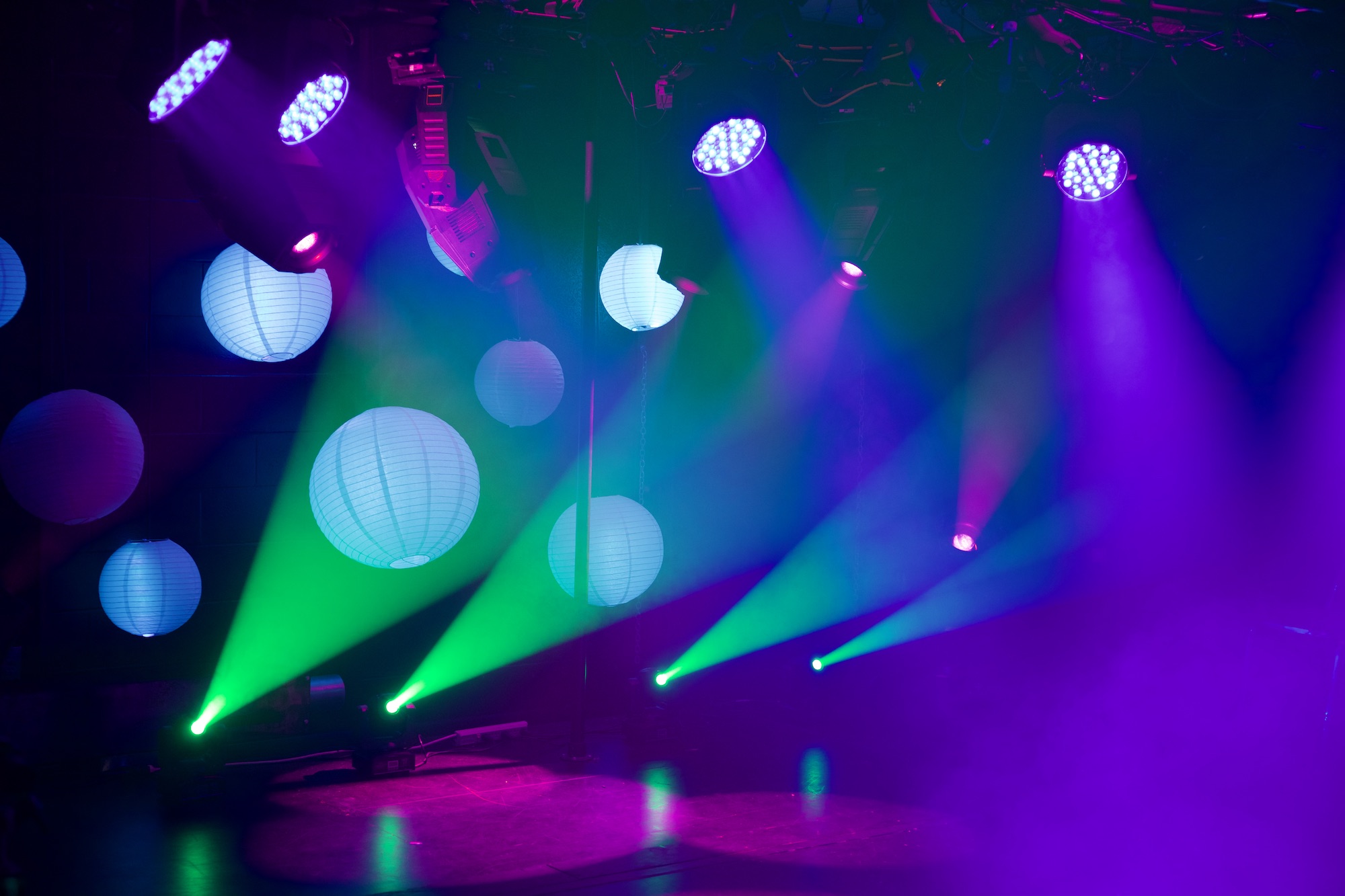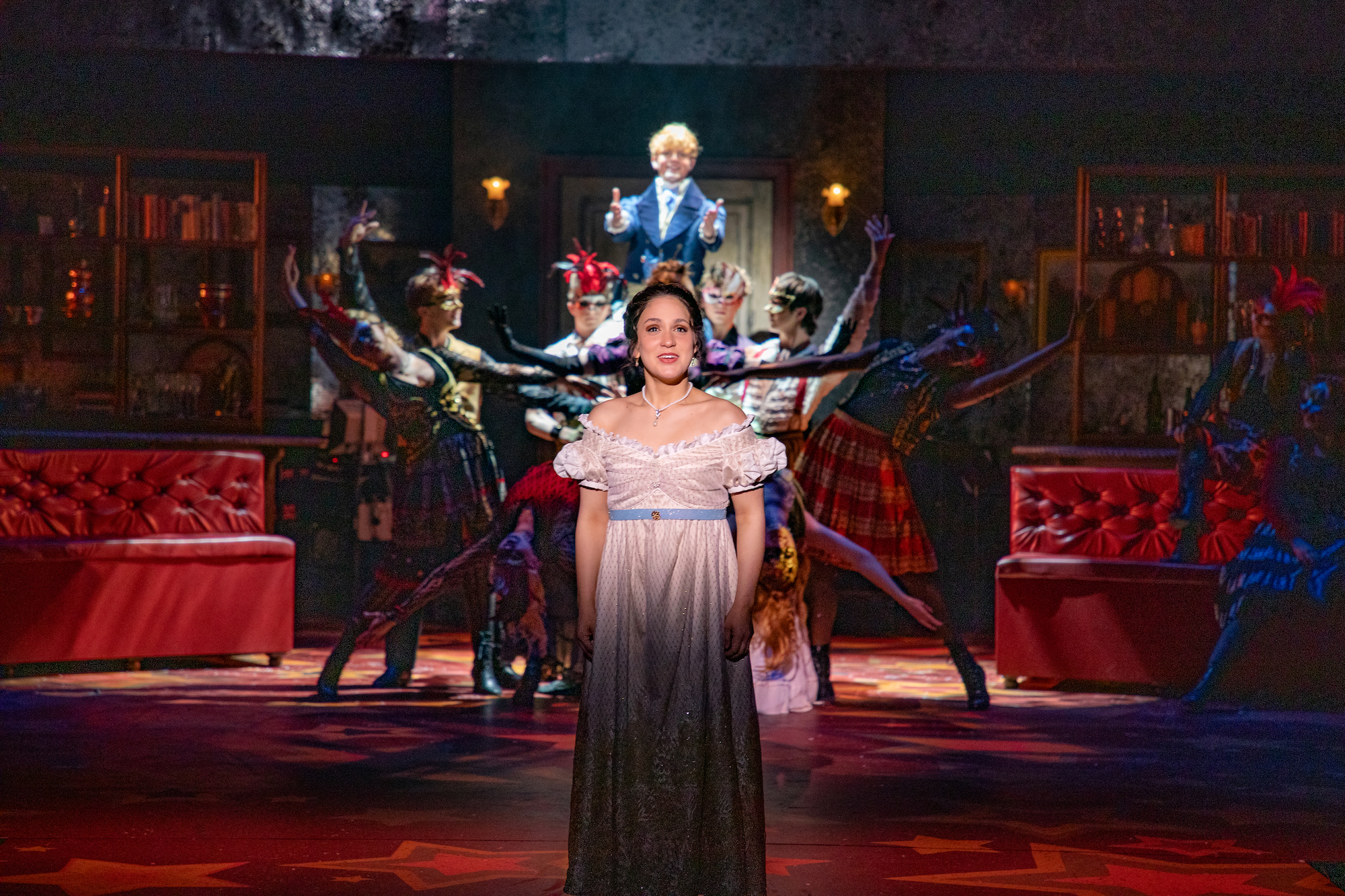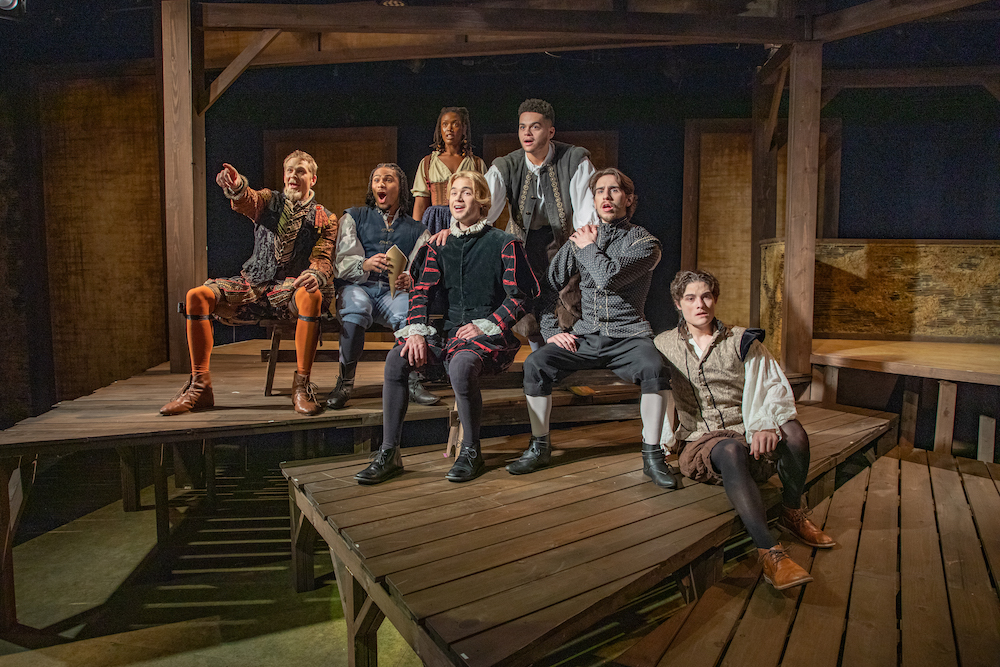MFA Lighting Design Program
The Master of Fine Arts in Lighting Design program at Florida State University provides students with training in the art and practice of lighting design. The program is designed to give students the skills they need to continue their growth as lighting designers in the performing arts or live entertainment.

Program Overview
Design students will develop an in-depth knowledge of the interdisciplinary work needed to bring a lighting design from the script to the stage and the technical skills to manage modern lighting systems effectively.
Each MFA Lighting Design student will design at least three productions while at FSU. A portfolio of professionally documented and creatively executed design work is required for graduation. In addition to applying to the program, students must also apply to Florida State University.
Admissions Requirements
- A Bachelor’s Degree in Theatre from an accredited college or university. Students who do not hold a Theatre degree must show evidence of substantial coursework and/or experience in theatre to indicate probability of achieving success in advanced theatre studies.
- A grade point average of at least 3.0 (on a 4.0 scale) during the last two years of study for a bachelor’s degree, or 3.0 on a master’s degree from an accredited institution; OR have acceptable scores on the verbal and quantitative portions of the Graduate Record Examination taken within the last 5 years.
- All applicants must participate in an interview and a portfolio review session, which may be at USITT Connect, URTA or USITT. An on-campus interview is required for all domestic applicants and strongly encouraged for international applicants.
- Applicants must submit a completed School of Theatre application, three current letters of recommendation, current resume, and a statement of purpose.
- Specific approval of the program director within the School of Theatre.
Lighting Design & Technology Opportunities
Lighting Design & FSU Productions: First-year Lighting Design MFA students serve as production assistant designers and electricians. Opportunities exist for students to design student-directed projects. The second-year students design season subscription shows. The third-year students will continue this trajectory with an MFA Creative Final Project or practical thesis, designing for a season subscription show, or other design projects that suit the student’s abilities and career goals. Most students will graduate with at least four realized productions in their portfolio.
School of Theatre Production Season: Five subscription shows are fully produced each season, including classical and contemporary plays, a children’s show, and two musicals. Previous shows include 9 to 5, Imogen Says Nothing, In the Heights, The Importance of Being Earnest, Last Stop on Market Street, Bulrusher, Men on Boats, and Eurydice. Unsupported work includes MFA Director One-Acts and devised theatre projects.
Other Design Work/Technical Production Work: With advisor permission, students can work with the FSU Film School, Opera Department, Dance Department, and FSU Flying High Circus either designing a project or as an assistant designer, or working as overhire in their production department. Students can learn and develop their technical skills through these practical experiences.
Mentorship: Florida State University’s MFA Lighting Design Program is committed to hands-on mentorship. Faculty and staff work closely with graduate students in classes, during assistantship hours, and in production to ensure students receive constant feedback and learning opportunities. All faculty and staff mentors are active professionals in their respective fields, bringing industry best practices back to production and classroom experiences. MFA students may participate in conferences and industry trips and work professionally alongside their mentors as opportunity permits.
Assistantship (20 hours per week): Assistantship includes a tuition waiver for 60 hours over three years plus a yearly stipend of $18,000. Students must acquire in-state resident status by the end of their first year. Assistantship work includes various production tasks, including hang and focus, programming, shop organization, fixture maintenance, and other technical work. Production work is assigned with student success and career goals in mind. Third-year students have the opportunity to teach undergraduate design and technology courses.
Courses
Lighting Design: Design classes engage with various production styles, asking students to design lighting for theatre, live entertainment, and themed attractions. Discussions of best practices in design include collaborative interaction, script analysis, research techniques, oral and visual communication skills, and critical thinking.
Lighting Technology: Classes in lighting technology emphasize problem-solving, efficiency in programming lighting consoles, modeling 3D spaces, and previsualizing designs with Augmented3D, Grand MA3, and Capture applications. Courses in automated lighting, resource management, and safety encourage the effective integration of technology to maximize design potential.
Integrated Design: Integrated design immerses students in a world of diverse design disciplines and production environments where innovation thrives through collaboration. Upending traditional design roles gives students a well-rounded perspective to find creative solutions for the next generation of productions, events, and attractions. With electives ranging from opera to interior design, film to dance, students tailor their educational experience to achieve their unique career goals.
Equipment & Facilities
Venues: The Fallon Theatre is a 490-seat proscenium fly house with 200 lighting fixtures, including LEDs and Moving Lights. The Lab Theatre is a 150-seat black box with 90 lighting fixtures, including LEDs. The Conradi Theatre is a 150-seat proscenium fly house with 70 fixtures.
Lighting and Show Control Lab: 950 sq. ft design and technology studio with EOS and Grand MA3 consoles, 30 conventional fixtures, 40 color-changing LEDs, and 20 moving lights. The Show Control Lab has two QLab Studios and three scenery automation systems.
Lighting Shop: Over 1900 sq. ft of on-site storage and lighting workspace.
CAB Studio and Electronics Lab

Explore the Season
Each year, the Florida State University School of Theatre presents five exciting productions. See what the upcoming season has in store.



